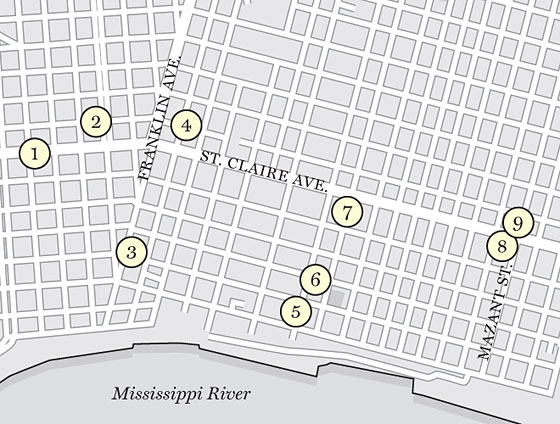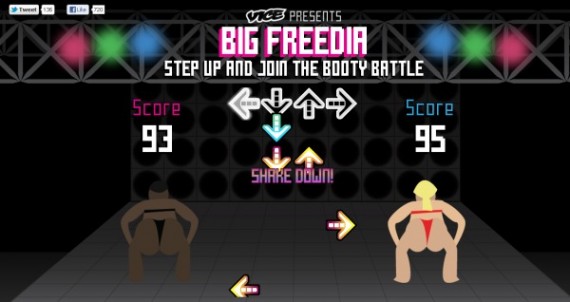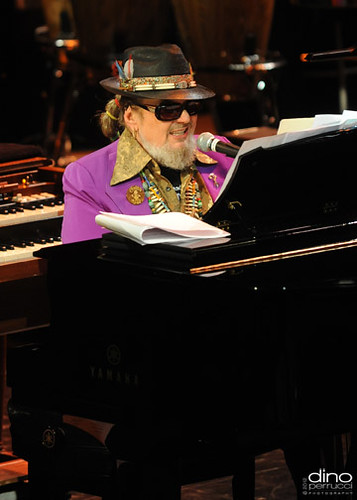 |
Map by Remie Geoffroi
|
Leave Bourbon Street to the Tourists
Part alt-college town, part faerie-anarchist commune, the
Marigny/Bywater neighborhood attracts both semiotics majors and gutter
punks. In this faubourg, palm trees are lit with blazing sunshine,
handmade costumes are as common as skimpy sundresses, and the vibe is
always a little trippy.
1. The AllWays Lounge & Theatre
2240 St. Claude Ave.
One night might offer square dancing, the next could showcase an erotic disco circus inspired by
A Streetcar Named Desire.
2. St. Roch Tavern
1200 St. Roch Ave.
The cheekily named vegan restaurant within, O! Vegasm, is open every day
but Monday, but the real fun comes Saturday nights when underground
queen Big Freedia’s D.J., Rusty Lazer, runs the sweatiest sissy bounce
party in town—ripe physically and olfactorily with crust punks.
3. Mimi’s in the Marigny
2601 Royal St.
This neighborhood bar—often blamed for sparking the area’s
gentrification—hosts an always-packed soul-funk dance party on Saturday
nights.
4. Mudlark Public Theater
1200 Port St.
A black-box theater that’s also home to Big Dick’s House of Big Boobs DIY strip club.
5. The Country Club
634 Louisa St.
Come for the bottomless Mimosas; stay for the topless suntanning at the clothing-optional pool (day passes from $10).
6. Satsuma Café
3218 Dauphine St.
The go-to joint for juice cleanses, quinoa salads, and hippieish freelancers pecking away at MacBooks.
7. Dithyrambalina
1027 Piety St.
An interactive “shantytown” installation built by sound artists and sculptors using salvaged materials. Reopens April 14.
8. The Front Gallery
4100 St. Claude Ave.
This multiroom patio-equipped space recently hosted an edible-insect
installation where dairy goats were hailed as guests of honor.
9. Good Children Gallery
4037 St. Claude Ave.
A community hub exhibiting local and global talent.












